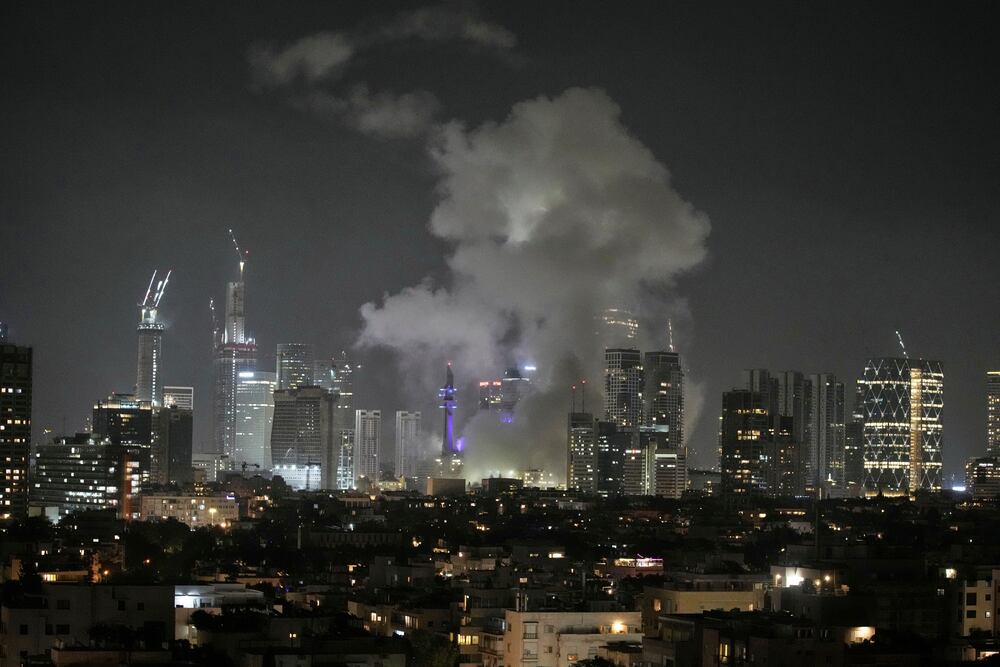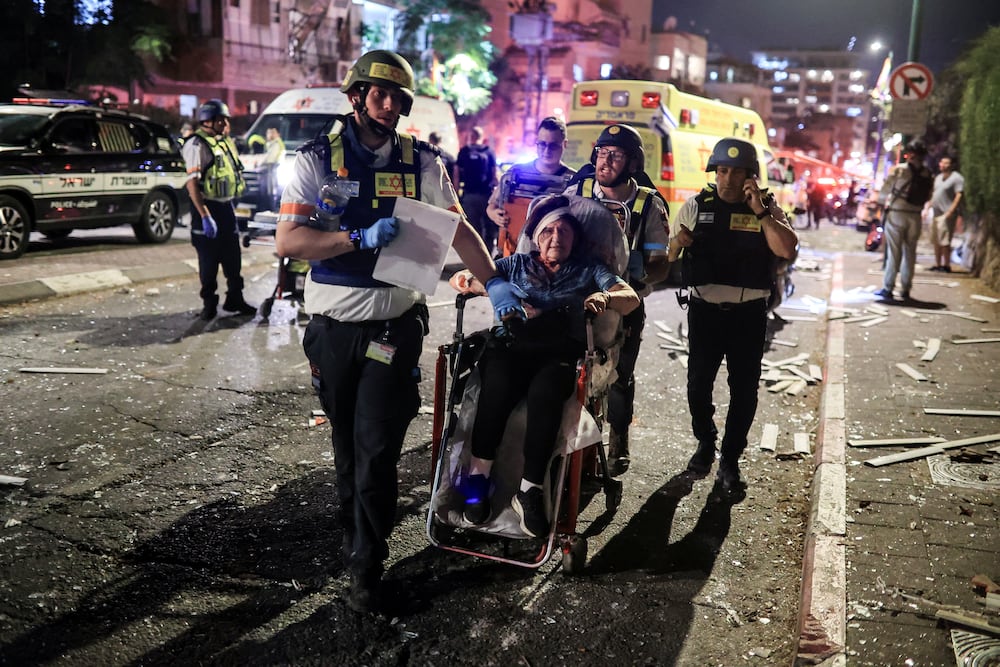A missile from Iran struck Tel Aviv this Friday. Tomer Neuberg (AP)
A tension that has already exploded
What for years was a covert war between Israel and Iran has now transformed into an open and dangerous military escalation. Israel launched a direct offensive on over a hundred targets in Iranian territory. In response, Iran fired dozens of missiles and drones toward Israeli soil.
This article analyzes the conflict step by step, with confirmed information and a clear focus to understand what is happening, why it is happening, and what might happen.
What triggered this new offensive?
The immediate trigger was an alert issued by the International Atomic Energy Agency (IAEA), which reported that Iran had begun to violate international law regulations regarding the oversight of its nuclear program. The organization denounced that Iran not only restricted access to inspectors but also ceased cooperating with established transparency and control regulations. This break with international agreements raised alarms in Tel Aviv.
In this context, Israel executed what it called Operation Rising Lion: a name loaded with symbolism. The "lion" has historically been a national and cultural emblem in the Israeli narrative, associated with strength, sovereignty, and vigilance. By adding the term "Rising," it conveys the idea of a decisive and strategic response that rises against a threat. It is not just a military code: it is a series of coordinated attacks between June 12 and 13 that included:
Bombing nuclear facilities (such as Natanz and Fordo),
Elimination of high-ranking members of the Revolutionary Guard,
Destruction of missile depots, and
Attacks on military research centers.
The offensive was planned for months and utilized advanced technology: suicide drones, internal explosives, and multiple aerial squads. The declared objective: to halt the Iranian nuclear program and limit its ballistic capability.
Netanyahu was clear: “We will not allow Iran to have the bomb. If the world does not act, we will.”
The Iranian response: fire on Israel
Hours after the attacks, Iran launched its counteroffensive. At least 100 ballistic missiles and drones were fired at Israeli cities. Although many were intercepted by the Iron Dome, several managed to reach residential areas and military bases.
Iran labeled the Israeli action as a declaration of war, warning that “there will be continuous and increasing consequences.” The fear of a regional conflict is not new, but it is now on the table with renewed strength.

Keys to understanding the conflict
1. A long-standing enmity
Since the Islamic Revolution of 1979, Iran has regarded Israel as its ideological and political enemy. Israel, for its part, sees Iran as an existential threat due to its support for armed groups such as Hezbollah and Hamas.
2. The nuclear race
Iran claims its nuclear program has peaceful purposes, but the international community has denounced the lack of transparency for years. Israel maintains that Tehran is on the verge of developing nuclear weapons, and that stopping it is a question of survival.
3. The game of allies
The U.S. maintains an ambiguous stance: it does not endorse the Israeli action, but it alerts and seeks to differentiate itself by announcing that its nation is not involved.
Europe seeks to mediate but lacks real weight at this stage of the conflict.
China and Russia are observing, evaluating, and waiting for an opportunity to influence.
Can the regional conflict escalate?
Yes, and quickly. Iran has armed allies throughout the Middle East, from Lebanon to Yemen. A movement by Hezbollah from northern Israel, or Houthi attacks in the Persian Gulf, could open multiple fronts simultaneously.
A key precedent is the 2006 conflict between Israel and Hezbollah in Lebanon, which, although geographically limited, drew the attention and indirect involvement of regional actors like Syria and Iran. More recently, the cross-border attacks in Syria have involved pro-Iran militias, Russian forces, and even Israeli bombings, in a complex web of conflicting interests. These episodes show how a bilateral confrontation can easily escalate and regionalize.
Israel, in turn, could intensify its offensive or even launch operations in Syria or Iraq to contain Iranian advances. The possibility of transforming into coordinated total war actions cannot be ruled out.
Yes, and quickly. Iran has armed allies throughout the Middle East, from Lebanon to Yemen. A movement by Hezbollah from northern Israel, or Houthi attacks in the Persian Gulf, could open multiple fronts simultaneously.
Israel, in turn, could intensify its offensive or even launch operations in Syria or Iraq to contain Iranian advances. The possibility of transforming into coordinated total war actions cannot be ruled out.

The silence of neighbors and diplomatic pressure
In the Arab world, there is silence but not indifference. Saudi Arabia and Egypt watch cautiously: they do not sympathize with Iran, but they also do not want a war that could set the region ablaze. International diplomacy is active, but without concrete results. The UN convened emergency sessions, but without substantial resolutions.
An undeclared war, but already underway
What is happening today between Israel and Iran is more than just a series of attacks. Unlike previous confrontations marked by cyberattacks, selective assassinations, or pinpoint bombings in Syria, this time it is about a direct and prolonged confrontation in sovereign territory, with much deeper strategic and diplomatic implications. It is the culmination of years of tension, threats, and preparations. It is also a test for regional balance and for the credibility of international bodies.
The question is no longer whether there will be war. The war, in many respects, has already begun. The issue is whether the world can stop it before it spirals out of control.

Comments